Gordie Tentrees at Centre 64 in Kimberley, Saturday November 28, 2021, 8pm
In this day and age performers like Gordie Tentrees are labelled as Singer / Song writers. In Gordie’s case that is true but it is not the whole story. Singer / Song writers can run the whole gamut from trivial pop music through the most esoteric music possible. In a different era Gordie would have been labelled simply as a “Folk Singer” but these days that is a rather a quaint label to hang on an artist. When was the last time you saw “Folk Singer” given any promotional prominence? Never-the-less, that’s what Gordie is, an honest-to-goodness folk singer and storyteller in the tradition of Woody Gutherie (without the prewar politics), Pete Seeger (without the banjo), John Prine (without the twang) and, closer to home, the Canadians Freddie Eaglesmith and David Francy. With these masters the story is the thing and in Gordie’s case the songs are slices of life polished to a gem like luster to enhance the story.
Gordie Tentrees (vocal, guitar, harmonica, Dobro, foot tambourine and stomp box) was accompanied by his side kick, the “icon of the Yukon”, Bob Hamilton on pedal steel guitar, 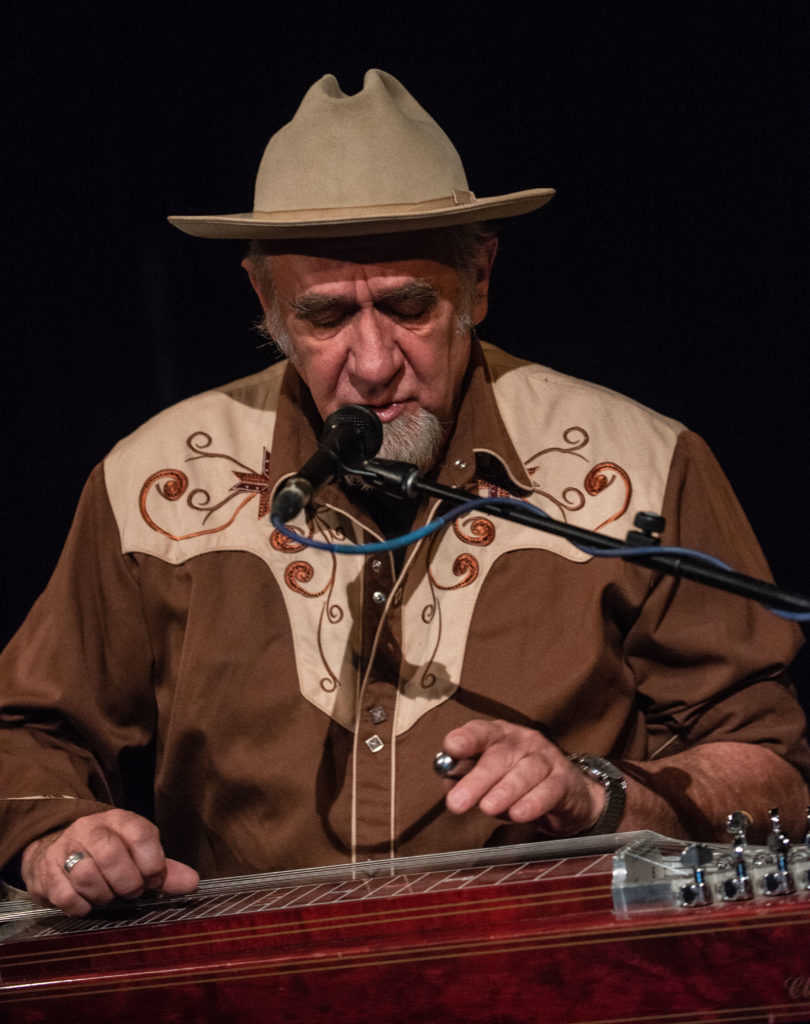 mandolin and arc top guitar. They traveled down from Whitehorse in the Yukon to do a string of twelve performances and, despite the horrendous weather, torrential rains, floods, wash outs and road closures they made it all the way through to Kimberley for the gig on Saturday November 28, 2021. The next day they headed off to Calgary for the long trip back up north to their home base in Whitehorse. That is a lot of kilometers to traverse to play twelve gigs in venues governed by strict Covid rules.
mandolin and arc top guitar. They traveled down from Whitehorse in the Yukon to do a string of twelve performances and, despite the horrendous weather, torrential rains, floods, wash outs and road closures they made it all the way through to Kimberley for the gig on Saturday November 28, 2021. The next day they headed off to Calgary for the long trip back up north to their home base in Whitehorse. That is a lot of kilometers to traverse to play twelve gigs in venues governed by strict Covid rules.
The show opened with some nice, gentle pedal steel guitar on the song Wind Walker. For the next hour and a half the audience was treated to a plethora of stories and songs that touched on Far Away Friends, Ring Speed (experiences as a boxer), Bye Gone Days (a desire to rewrite Canadian history), Craft Beards and Man Buns (dubious man fashions), Less is More (you don’t have to be a deadbeat dad), a Tlingit song and lots of stories culled from and interesting life that started in Bancroft, Ontario before heading across Canada and the world. Along the way he spent time in New Zealand and Western Australia and in one of my favorite places – Byron Bay, New South Wales.
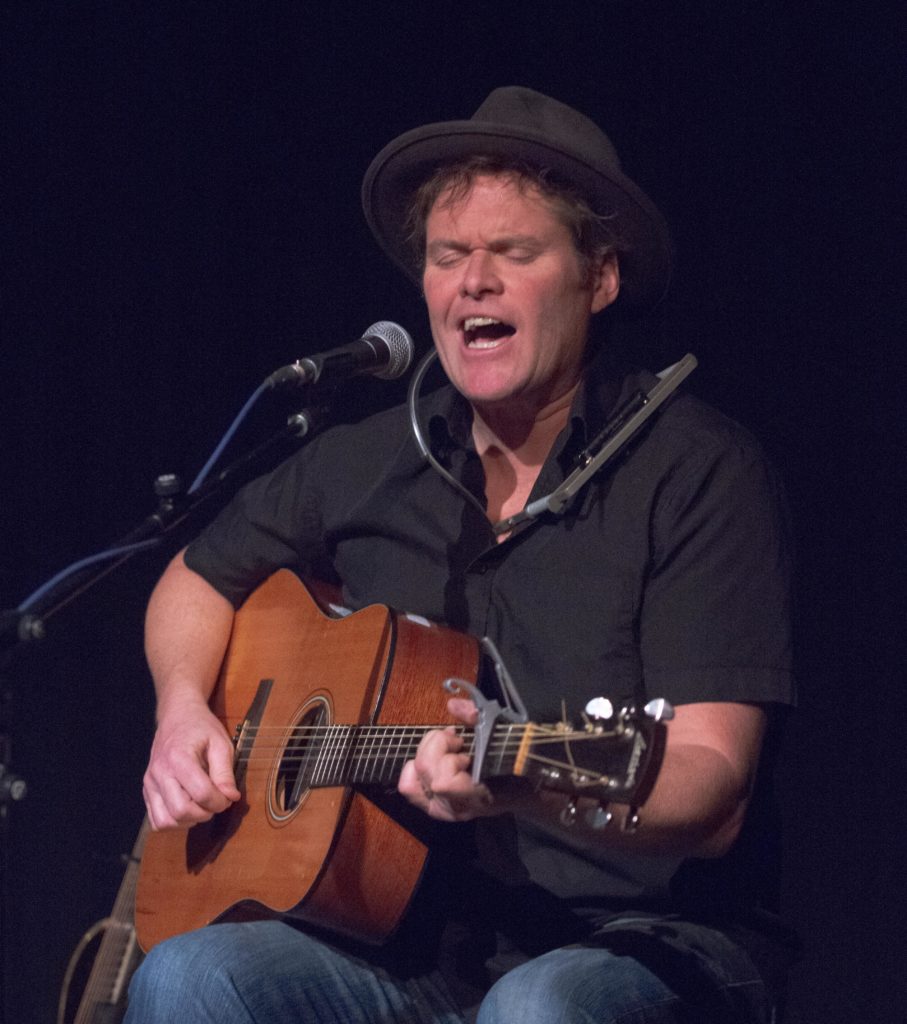
Bob Hamilton played his appointed role as an accompanist on Pedal steel guitar in a C6 tuning (for those interested in that sort of thing), some driving mandolin and arc top guitar. Geordie gave him lots of solo space and spiced up the music with some tasteful foot tambourine and stomp box. Because of covid restrictions there was no interval. In these trying times we are thankful for the Kimberley crew who planned and organized the evening’s music. Well done guys.
Here are some more images from the evening:
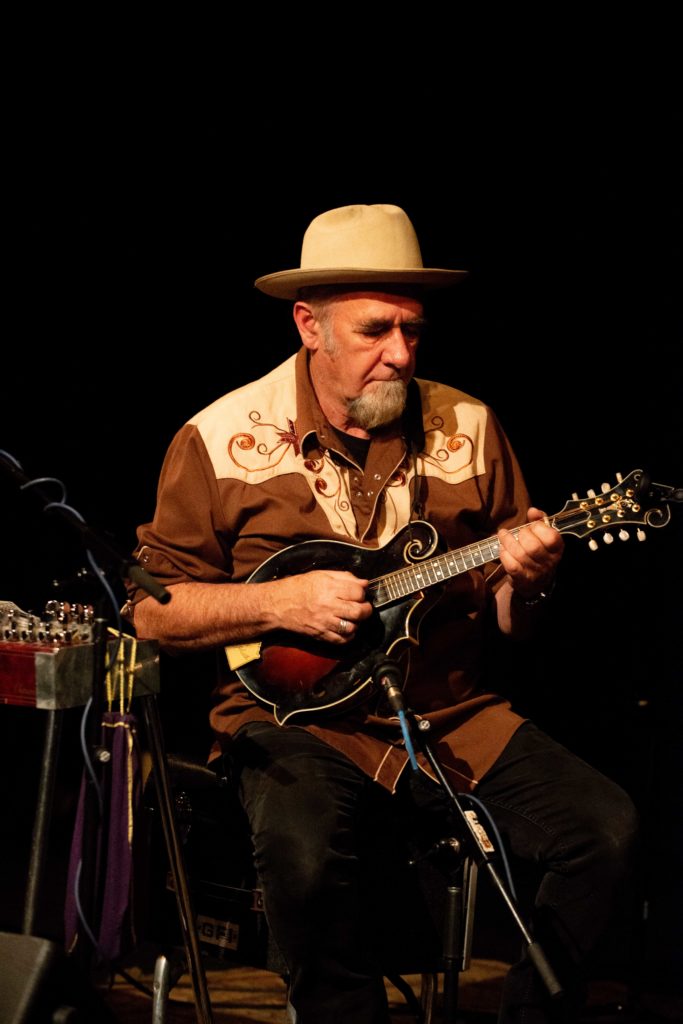
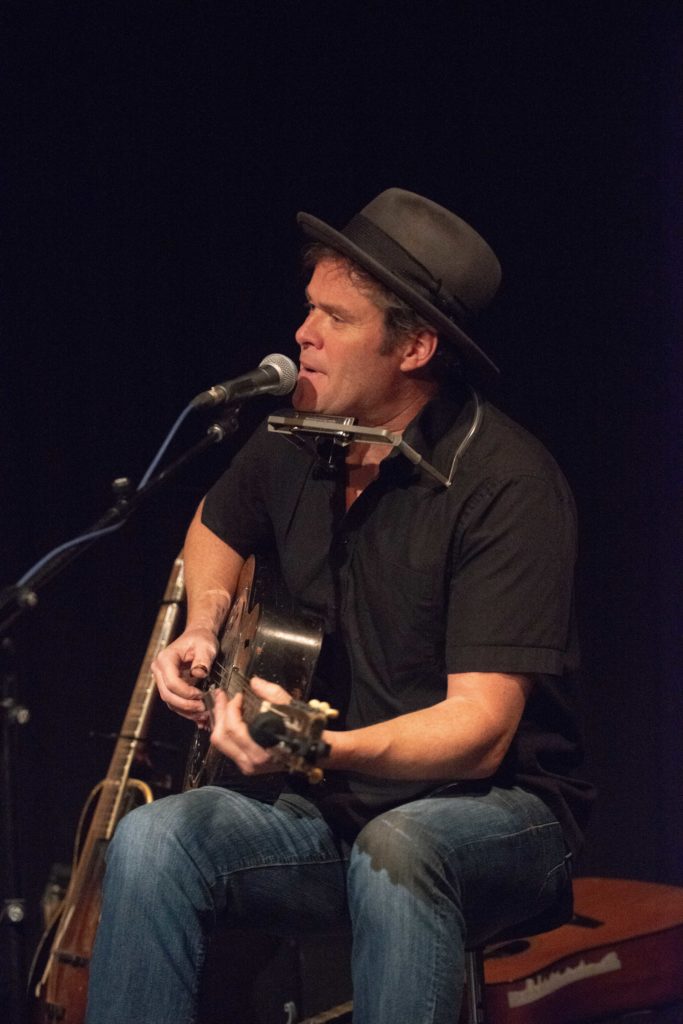
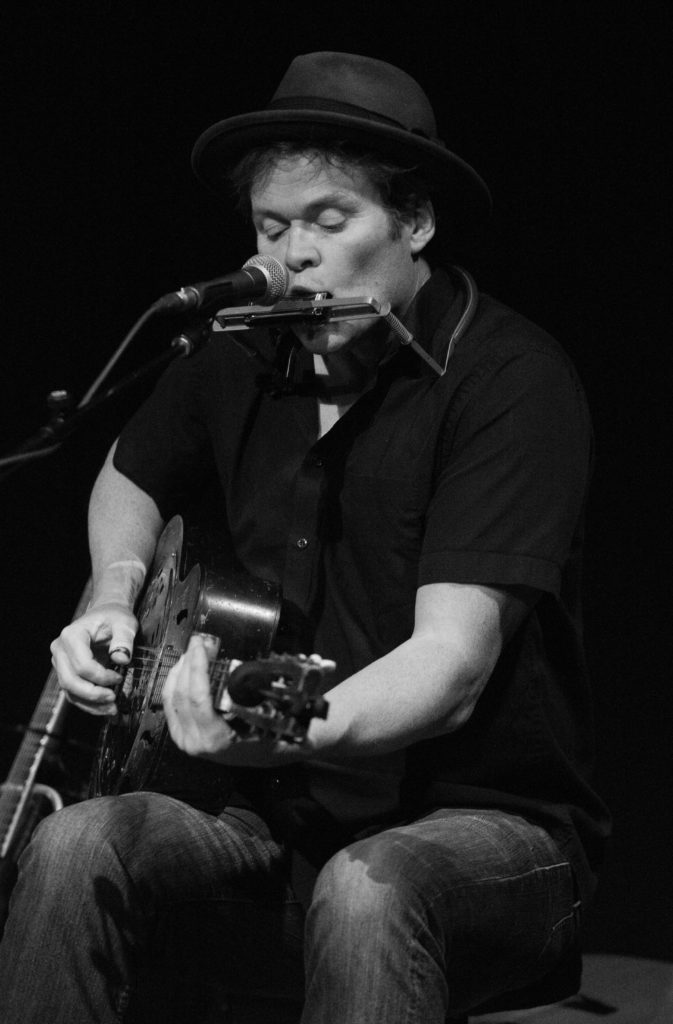
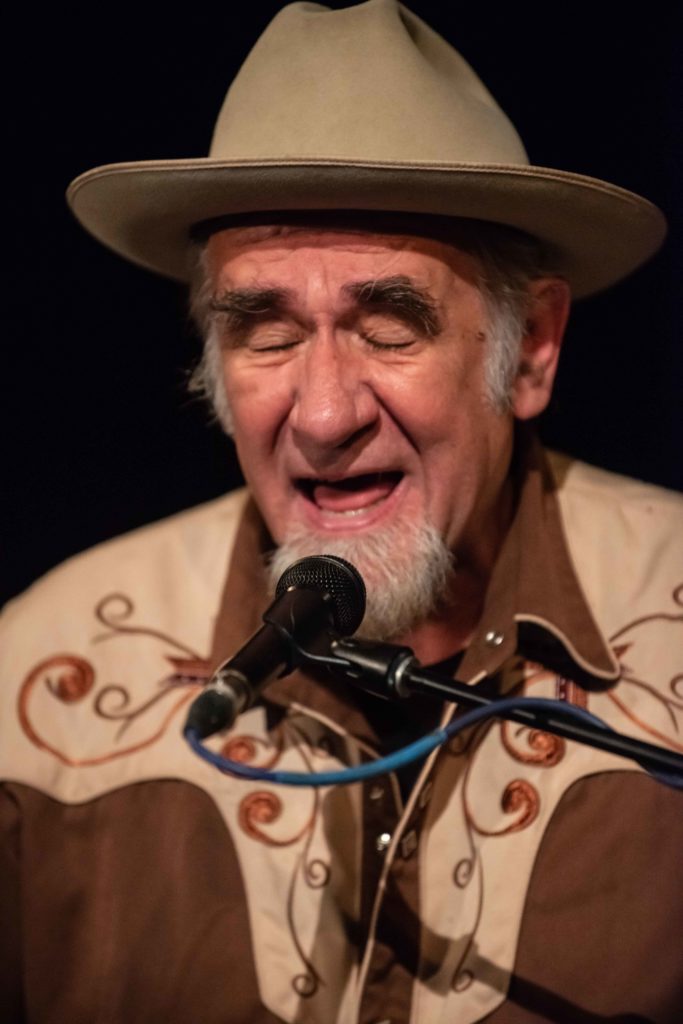
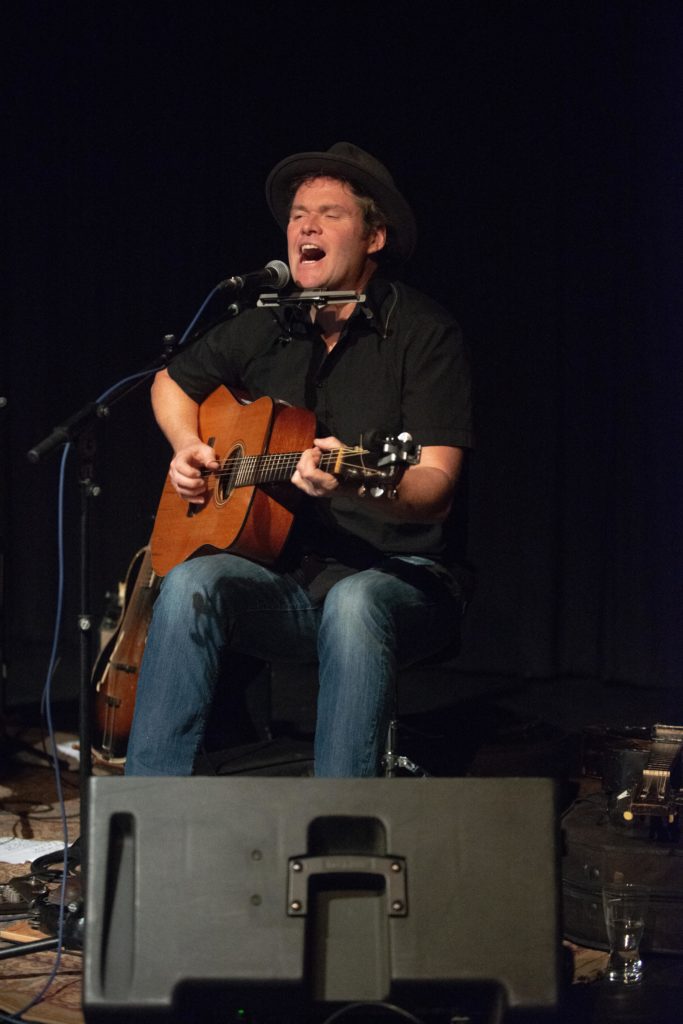
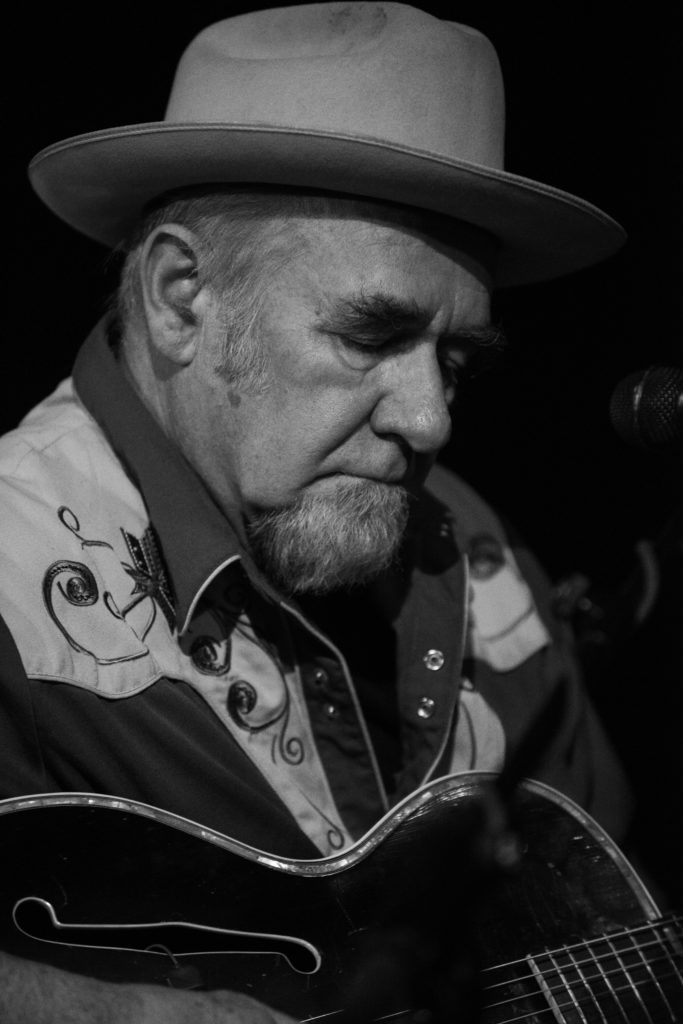
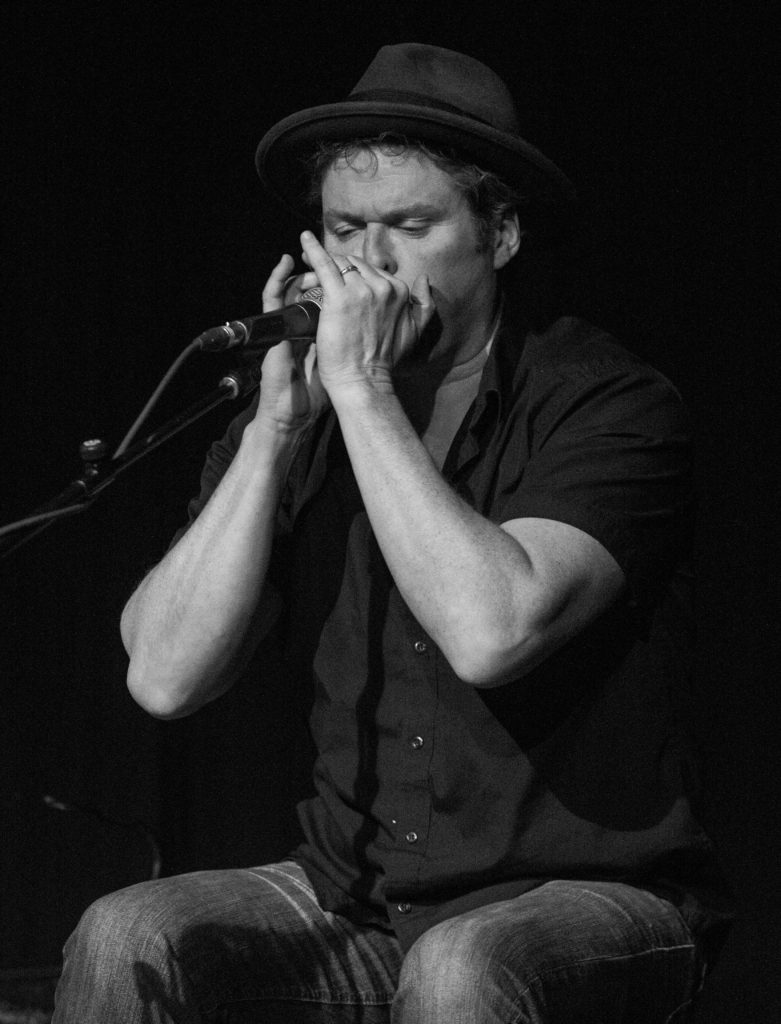
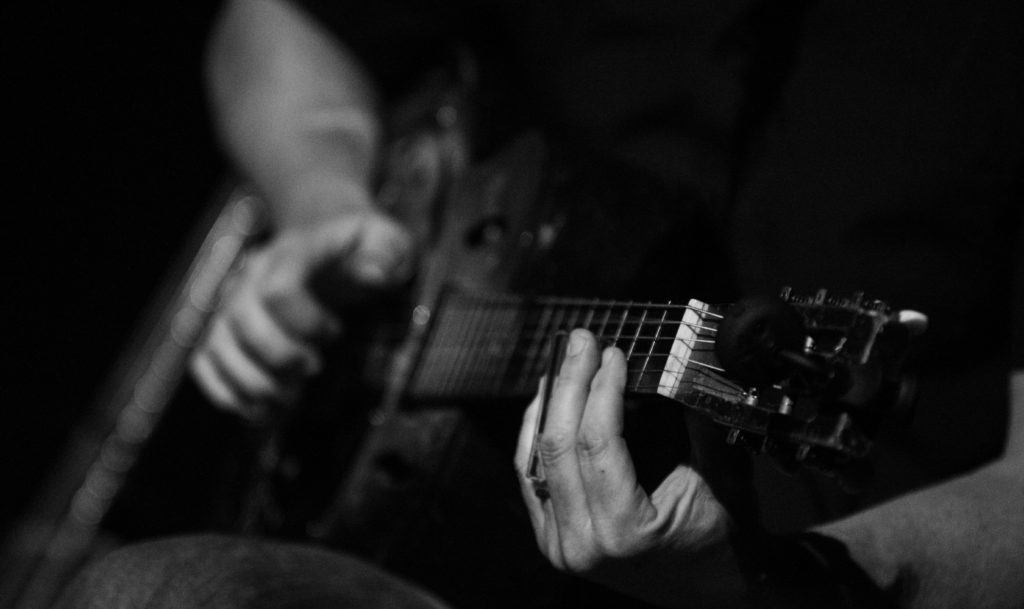 @@@@@@@@@@@@@@
@@@@@@@@@@@@@@
POST SCRIPT:
Gordie’s comments on race relations are worth repeating “the New Zealanders are way ahead of Canada and Australia is way, way behind”. Australia has yet to confront its racist past and its treatment of indigenous people. I can verify his opinions. I am Australian born and lived in Australia until I moved to Canada in my early 30’s. Growing up in Australia I had no contact with Aborigines. I met my first Aborigine in Byron Bay while working in a slaughter house. I was then in my late twenties. Prior to that time I had worked and lived in Sydney and each day I caught the train into the city to go to work.. Each day I would step off the train at Central station and, unbeknownst to me, immediately behind the station, on the other side of tracks, so to speak, there was an aboriginal ghetto.I worked in the city for nine years without being aware of that fact. In later years I learnt there were parts of the city where “whites” were not welcome. In the late 1960s I hitch hiked across Australia to Perth and outside Kalgoorlie in Western Australia I was picked up by a driver who must have been in his seventies. In conversation he mentioned that in his youth he was a drover on one of the big cattle stations and, because they speared cattle, he said that they were under orders to shoot “wild blacks”. That would have placed such instances back in the early part of the twentieth century. Not that long ago when you stop and think about it.
Since that time I have traveled to New Zealand a number of times. I even lived there for the best part of a year and became aware of the Maori culture and its impact and integration into New Zealand society. New Zealand must be the only place on the planet where the indigenous culture has changed the white man. If I had not finally settled in Canada, New Zealand would have been my choice as a place to live and bring up a family. Every body should take a trip to New Zealand before they die. It is a very special place.
@@@@@@@@@@@@@@
